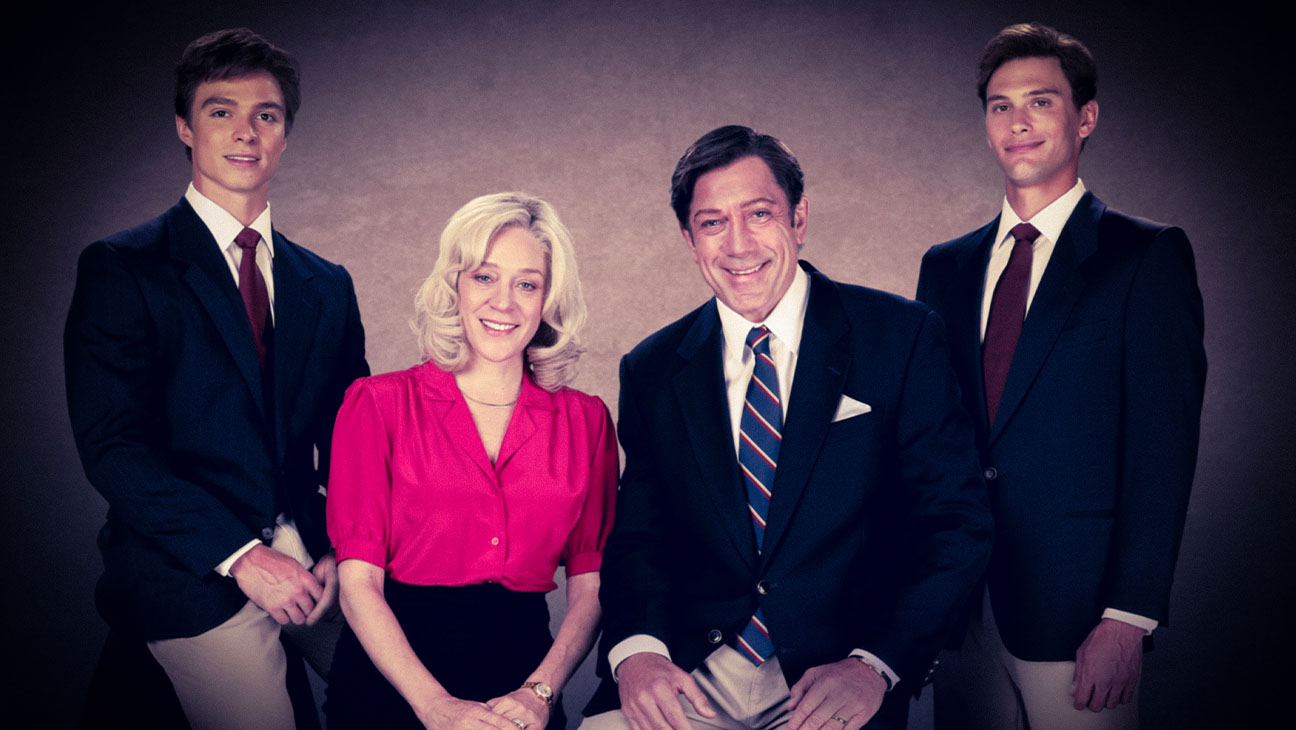Eleven o’clock on Friday night is easily one of the worst time slots in what remains of linear TV. But, for the past five weeks, that’s been the designated drop for Fantasmas. A surrealist odyssey through New York, one rendered via sets that recall Dogtown and Gremlins 2: The New Batch in equal measure, each half-hour depicts a world where consciousness can be uploaded to the cloud, Zappos has entered the streaming wars, Grindr is populated by Smurf-like creatures and demonic Pomeranians and most of the population heeds an oppressive call for “Proof of Existence” — a catch-all for the kind of bureaucratic, capitalist bullshit that haunts this series’ creator.
Challenging description, Fantasmas is best explained by just acknowledging that its writer, director and star is Julio Torres. An absurdist auteur who got his start penning avant-garde Saturday Night Live shorts before segueing to a fruitful relationship with HBO (see comedy special My Favorite Shapes, two seasons of Los Espookys and, now, this), Torres’ work fits into no known programming bucket. And while segueing to feature filmmaking with Tilda Swinton vehicle Problemista helped prove that the 37-year-old Salvadoran-American is hardly niche, it’s impossible to watch Fantasmas without wondering how Torres got Fantasmas on the air — even at its late hour. Hilarious and eerily relevant, it’s a rare and welcome weirdo in a time of curtailed content spending and overwhelming industry preoccupation with franchises. Zooming from Fire Island ahead of the sixth and final episode that premieres this Friday on HBO and Max, Torres admits he’s not exactly sure how he sold it either.
At one point in Fantasmas, your character pitches an awful programming executive at Zappos, the online shoe retailer, which made me wonder how you pitched this show.
It is sort of… unpitchable. I think the only reason it even happened was because I already had a relationship with HBO. The people who greenlit it had enough faith in me to just go for it. All they understood was that it was going to be a show of vignettes. I pitched it as a special. Then it was two episodes. Two became four and then six. I still don’t know how even classify it. Is it a series? (Laughs.) I just know that I made this, it’s out there and I like it.
You’ve worked with A24 and HBO, arguably two of the most adventurous collaborators out there right now. But have you had meetings, like the one you wrote for the show, where you’ve been pressured to mine personal trauma in your work?
Not quite as callous, but, absolutely, yes. I’ve never gotten close to making something like that. And I don’t know if pressure is the right word. It’s an expectation, an expectation that I never quite fulfilled. Sometimes it felt like the only reason I was in meetings was the expectation or the hope that I would deliver something very easy and palatable.

Julio Torres and Natasha Lyonne, playing a programming executive at a Zappos streaming platform, in Fantasmas.
Atsushi Nishijima/HBO
The current version of palatable seems to be trauma comedy. Natasha Lyonne, who plays the Zappos exec, only gets interested when she forces Fantasmas Julio to suggest a show called How I Came Out to My Abuela. I’m guessing you don’t have something like that in your back pocket.
So many creatives feel this way. When something works commercially and culturally, there is this anxiety from the industry to replicate it instead of finding the next new thing. When I began having the privilege to be in meetings where people were curious to see what a show or a movie of mine would look like, Broad City kept coming up as an example of something that executives wanted. A Latino Broad City! An immigrant Broad City! A queer Broad City! I am sure that, when [Ilana Glazer and Abbi Jacobson] were pitching Broad City, they were probably faced with something similar. As soon as you identify a formula and expect people to replicate it, you’re breaking it. Broad City is not Girls. And Girls is not Sex and the City.
In having a substantial body of work now, have you found Hollywood better understands your talents and taste?
Now I’d say it’s neutral. I don’t think I’d be in a position of being in a room with someone who isn’t interested in the kind of work that I do. Most parties understand that it would be a waste of time to have a meeting where I don’t want to do what they want and they don’t do what I want.
Fantasmas is a real outlier, in that it premiered at a time when most creatives are bemoaning the lack of risk-taking in TV and film. Do you worry about the shrinking number of places that seem to want original ideas?
Creative minds fled to the internet when it felt like network wasn’t fertile. They found a scrappier way in. Then streaming became a sort of welcoming environment. Now it feels like we’re back to network — except the apps are now the networks. It behooves us as artists not to keep pushing the same button on the same slot machine, over and over again, when nothing’s coming out. Try a different slot machine. I make work because I like making work. Obviously, money is nice and it brings comfort, but I don’t think that my creative life is dependent on streamers. It’s actually a very interesting question that I have been wondering about a lot lately. But I think AI and the slow consolidation of platforms that can actually pay for the work just make it so that the artist must find new ways.
The throughline of Fantasmas is you avoiding enrollment in something called “Proof of Existence.” You’ve written a lot about your experience with immigration, but there are a lot of other things this could be in reference to: credit scores, the “Real ID” that’s being instituted. What does it symbolize for you?
I have a very strong sense of my anxieties and the things that I am interested in. At a time, yes, visa stuff, but also credit scores. I don’t have a credit card. I don’t have a credit score. I don’t want to participate in that system. That was starting to become the throughline: banks and money. Then, because the show is a little more removed from reality, one of our producers — my friend, Neha Simon — suggested something more of the world of the show, something broader. It shouldn’t be so specific that it’s financial because Julio, even though he’s a creative struggling with money, he has a robot and a manager. It’s not quite as compelling. And my preoccupation are more philosophical. “Proof of Existence” is a stand-in for the things that I have been interested for a long time and will continue to be interested in.
It lends itself to so many aspects of modern life.
It’s this question of who gets to be in the system, who is left outside of the system and our ability or inability to participate in it. Something that I have been thinking about for a long time is the subway. Now you can tap to enter. In some subway stations, if you only have cash, you can’t ride the train. It’s pushing people out. The things that are masked as convenient are exclusionary. There’s just something malevolent about them. It’s sad to think that New York could become a place where only those that can thrive within this specific system can live.

“Dave McCary was the one who thought, ‘Would it be easier if we shot on sets instead of locations?’” says Torres. “It ended up being more expensive. (Laughs.) But I always loved sets, and it’s not just a pretty thing to do for no reason. It’s a visual manifestation of the loneliness and the isolation in this world. We wanted to combine the visual sensibilities of the show with its core anxieties.”
Atsushi Nishijima/HBO
I read that you recently got rejected from a vacation in Costa Rica because they said your passport was too wrinkly. Do you ever feel that you might just be a magnet for bureaucratic indignities?
I got rejected from a vacation because my passport was too wrinkly, so they put me back in the plane and sent right back. Also, I just went to London. I arrived at Heathrow Airport, and I hadn’t been to the U.K. since Brexit. I didn’t know that people from El Salvador now need visas. I didn’t have a visa, so I thought, “Well, OK, they’re going to put me on the plane right back.” But no! They held me in custody all day. They took my phone away, took my ID away, took my bags away. It was just like, “If you’re hungry, let us know!” They try to make it seem as nice as possible, but at the end of the day, they’re locking you in a room and you can’t leave. They have all your things and you get fingerprinted. I had my little mugshot. I wasn’t surprised by any of it. I was like, “Oh, here’s a new little adventure.” Do I think I am a magnet for those things? No. But I deal with a microscopic version of what other people who don’t get to make TV and movies deal with. The card that I was dealt was that I was born in this tiny country that has little resources. That really informs your trajectory for the rest of your life.
The U.K. eventually let you in but Costa Rica did send you home. That doesn’t make you mad?
Well, I am a very disorganized person. Sending me back because of a wrinkly passport is insane cop behavior. But maybe a person who would have his act a little more together wouldn’t have a wrinkly passport. Then again, why do you have to be so perfect to go to Costa Rica?
The sets on this show are really impressive. But having your imagination, are you ever told something is too expensive to execute?
All the time. Are you kidding? All the time. (Laughs.) When I’m told something is too expensive, that is where the push and pull between dream and reality comes in. For someone who is visually ambitious as I am — someone who’s not Steven Spielberg or James Cameron and hasn’t proved that an investment in me is worth the money — my productions have to be scrappy and resourceful and imaginative. I’m interested in the idea of thriving within limits. Budget is just one of those limits.
Emma Stone and Dave McCary, your segment director when you were at SNL, produced Fantasmas and Problemista. Since neither you or Dave still work at SNL, how did Papyrus 2 come about?
Ryan Gosling reached out and asked, “Do you think this could happen?” We didn’t know that the world needed it. I didn’t know that there was any idea there. As I kept thinking about it, kept chewing on it, I realized “Oh, yes!” And Ryan is absolutely beautiful in it. It’s a joy.
Jon Hamm recently spoke to my colleague. When she asked him who was on his collaborator wish list, he named Martin Scorsese, Wes Anderson and you.
Oh my God. Wow! Honored to be on that short list. Three very different worlds right there, and I can see him thriving in all of them.
All that’s to say, you’re at a place in your career where a lot of people want to work with you. You can really expand your collaborator pool. So, who do you want to work with?
I truly just want to continue working with my community of creatives. I feel like that is how Wes Anderson and Martin Scorsese became Wes Anderson or Martin Scorsese. They didn’t chase after things that already existed. They held their creative family and came up together. The Wes Anderson’s crew, that dates back to Bottle Rocket. That is the path that I am interested in, and I am so excited and so humbled to have new additions to that family. I want to work with Tilda Swinton forever — over and over again.
What are you working on next?
I am coming down from what ended up being a half-year of promotion, as opposed to making work, which is not my favorite feeling. But my work is often a slow release. It’s not like I’m making Dune and this is the weekend! So I’m excited to take some time away. I have ideas for movies. My head is very much in film at the moment, but I’m a pretty malleable in terms of form. I’ll go wherever they’ll have me.
Are there any new shapes that have recently come into your life that you’d like to talk about?
I have shapes that have gone away from my life!
Oh no.
Right? The day of the premiere of Fantasmas, I lost a necklace. It was my longest-standing relationship with a piece of jewelry, and I lost it that day. It’s the necklace that Bibo is untangling in the show. It just felt so fitting, like, “Here we go!”
Well, other than that, congratulations on what seems to be a great year.
I don’t know if it’s my year, but I am having a year.
Whose year is it, really?
In entertainment? Charlie XCX, but that depends on who you ask.
Summer is certainly leaning in her favor.
For sure. The polls haven’t closed yet, but it’s looking like she won summer. Good for her.



